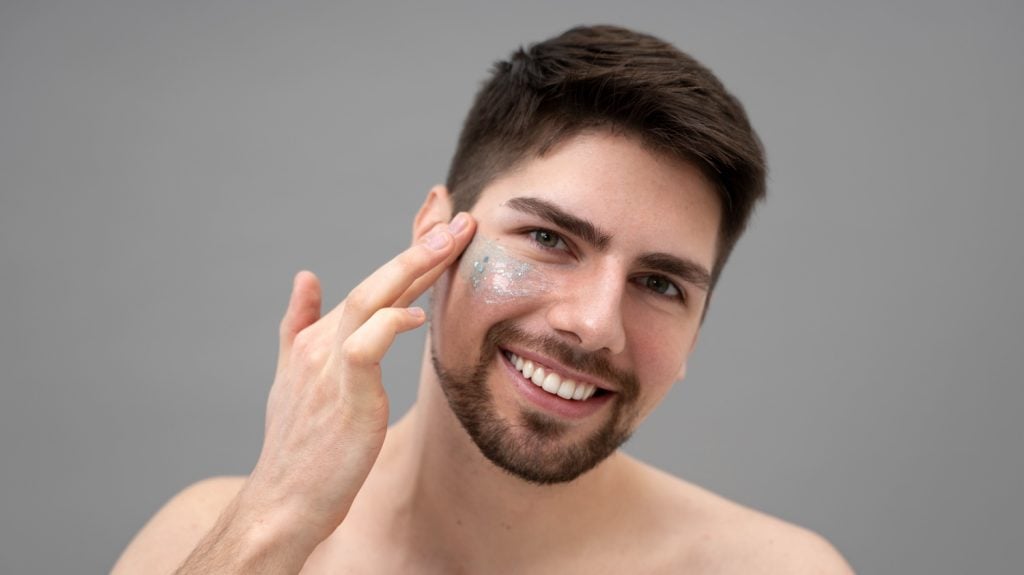Health
Learn how to boost your collagen naturally
Did you know you don’t have to spend money on special powders and pills to boost your collagen? Learn how to do so by choosing the right food.
Advertisement
Getting collagen from rich foods is cheaper and more natural

Nowadays, you can find collagen in all types of gummies, pills and powders. They all promise the same thing: better skin, better nails and an eternal youthful look.
The supplement has become quite popular and usually has other health perks like stomach health advantages.
But should you partake in all the hype? As we all know, supplements can be quite expensive, and collagen is no different.

Foods that make you happy – according to science!
According to scientific research, there are some types of foods that can make you happy. Curious as to know what they are? Read on for more!
Thankfully, it’s actually much better for your body to get it from your diet rather than get it from supplements.
In this article, we’ll help you have a better understanding of what collagen is and how it works in your body. That way you can make the best choice based on your nutrition needs. Keep reading to learn more!
What is collagen and how does it work?
Collagen is the most abundant protein in the animal kingdom, and it’s a major component of connective tissues like tendons, ligaments, and skin. It is composed of three polypeptide chains that are coiled together into a triple helix.
These molecules are held together by cross-links between the chains, which give collagen its strength.
When the body produces the protein, these cross-links must be formed correctly in order for the collagen to be strong.
If they’re not, the protein will be weaker and more likely to break down.
Collagen is constantly being broken down and rebuilt, and this process is impaired as we age, which is why our bones get weaker and our skin gets more wrinkles.
Collagen works by providing structural support for tissues. It helps to resist stretching and shearing forces, and it also helps to distribute load evenly across a tissue.
This allows tissues like tendons and ligaments to withstand high levels of force without breaking down.
Additionally, collagen provides support for blood vessels and helps to keep them open so that blood can flow freely.
Finally, it helps to protect organs by providing a barrier between them and their surroundings. All of these functions are essential for maintaining the health of our bodies.
You will be redirected to another website
By submitting this form, I agree that I am 18+ years old and I agree to the Privacy Policy and Terms and Conditions. I also provide my signature giving express consent to receive marketing communications via automated emails, SMS or MMS text messages and other forms of communication regarding financial products such as credit card and loans. Message frequency varies and represents our good faith effort to reach you regarding your inquiry. Message and data rates may apply. Text HELP for help or text STOP to cancel. I understand that my consent to receive communications is not a condition of purchase and I may revoke my consent at any time.
How do you know if you have enough collagen?

Collagen is the most abundant protein in the human body. It is found in connective tissues such as skin, tendons, cartilage and bone.
As we age, its production declines and we start to see the effects in our skin. Wrinkles form, and skin becomes thinner and less elastic.
So how do you know if you have enough collagen? One way to tell is to look at your skin. If you’re noticing more wrinkles and dryness, that’s a sign that your levels may be low.
You may also notice joint pain or stiffness, as collagen plays an important role in keeping our joints healthy.
Another way to tell if you’re low on the protein is to get your blood levels checked. A simple blood test can measure your levels and give you a good idea of where you stand.
In general, most people have sufficient collagen levels and do not need to worry about supplementation.
However, people with certain conditions or those who have undergone surgery or trauma may benefit from it.
Collagen supplements are also recommended for people who want to improve their skin health or prevent wrinkles.
Are supplements really necessary?
As we age, our collagen production declines, leading to wrinkles and other signs of aging skin.
This has led many people to turn to collagen supplements and skin treatments in an effort to stay looking young and healthy. But do these products really work?
Collagen supplements may help to improve the appearance of your skin. Some studies have shown that they can increase production, leading to firmer, more elastic skin.
However, they may not be right for everyone. If you have certain medical conditions, such as diabetes or liver disease, you should speak to your doctor before taking collagen supplements.
There is also some evidence that certain skin treatments can help to improve the appearance of aging. For example, laser therapy and microneedling are both thought to stimulate production.
At the end of the day, whether or not you choose to take supplements or undergo skin treatments is a personal decision.
If you are concerned about the appearance of your skin, it is worth speaking to your doctor about your diet or a possible treatment.
How can the body produce more collagen naturally?

If you don’t feel the supplementation or pricey skin treatments are for you, there’s a more natural approach you can take to help your body produce more collagen.
The best way to do that is to create a well-balanced diet for yourself.
While there’s no magic food that will suddenly boost its production overnight, there are certain nutrients that are essential for its synthesis.
These include vitamin C, proline and glycine – which are aminoacids. Foods rich in zinc and copper are also recommended.
One food that is high in collagen is bone broth. Bone broth is made by simmering bones in water for an extended period of time.
This process releases collagen into the broth, which can then be consumed. You can add bone broth to soups or stews, or simply enjoy it on its own.
Another group of foods that promotes the production is seafood. Seafood contains high levels of protein and amino acids, which are the building blocks of collagen.
Salmon, shrimp, and tuna are all excellent sources for boosting nutrients.
In addition to bone broth and seafood, there are a number of other foods that can help support collagen production.
These include leafy green vegetables, citrus fruits, nuts, and seeds. Incorporating these collagen-rich foods into your diet is a delicious way to keep your skin looking its best.
What are the best foods for brain health?
What you eat directly affects your brain. Poor diets can lead to cognitive decline, while healthy diets can help improve memory, focus, and mood.
Follow the link below to learn more about the best foods that will help your brain and your overall health.

What are the best foods for brain health?
Learn what are the best foods for good brain health to include in your diet that will improve your memory, reduce stress and more!
Trending Topics

5 Must-have Credit Cards for Small Business Owners
From earning rewards to simplifying expense tracking, small business credit cards can be a game-changer for owners! Discover the best ones!
Keep Reading
10 Foods That Can Negatively Affect Your Health
Learn about the 10 foods that can affect your health. From processed snacks to fried foods, these are the foods you should avoid!
Keep Reading
Pros and cons of a business partnership
Before entering a business partnership, understand the pros and cons. This article outlines the benefits and risksof partnerships.
Keep ReadingYou may also like

Chase Freedom Flex℠ Credit Card Review
Learn about the Chase Freedom Flex℠ Credit Card features that give you up to 5% cash back and an extra level of flexibility.
Keep Reading
Cheapest vs most expensive things in the world: find out the opposites in pricing
Can you guess what is the cheapest vs most expensive things in the world? The prices range from $0.15 to trillions!
Keep Reading
The best board games: our 10 picks!
We're sharing our pick of the best board games, so all you need to do is clear some table space and prepare for a great evening of fun.
Keep Reading